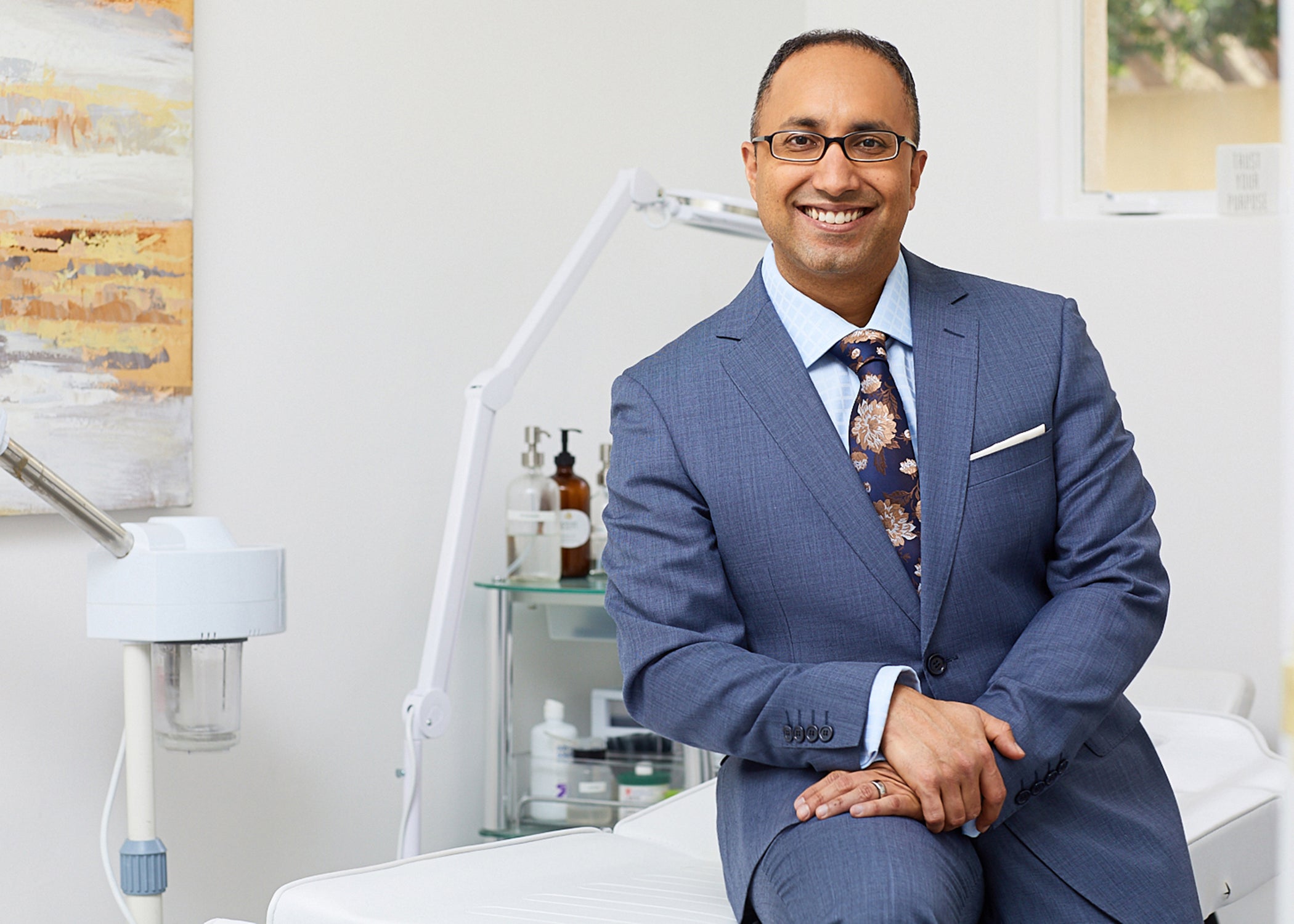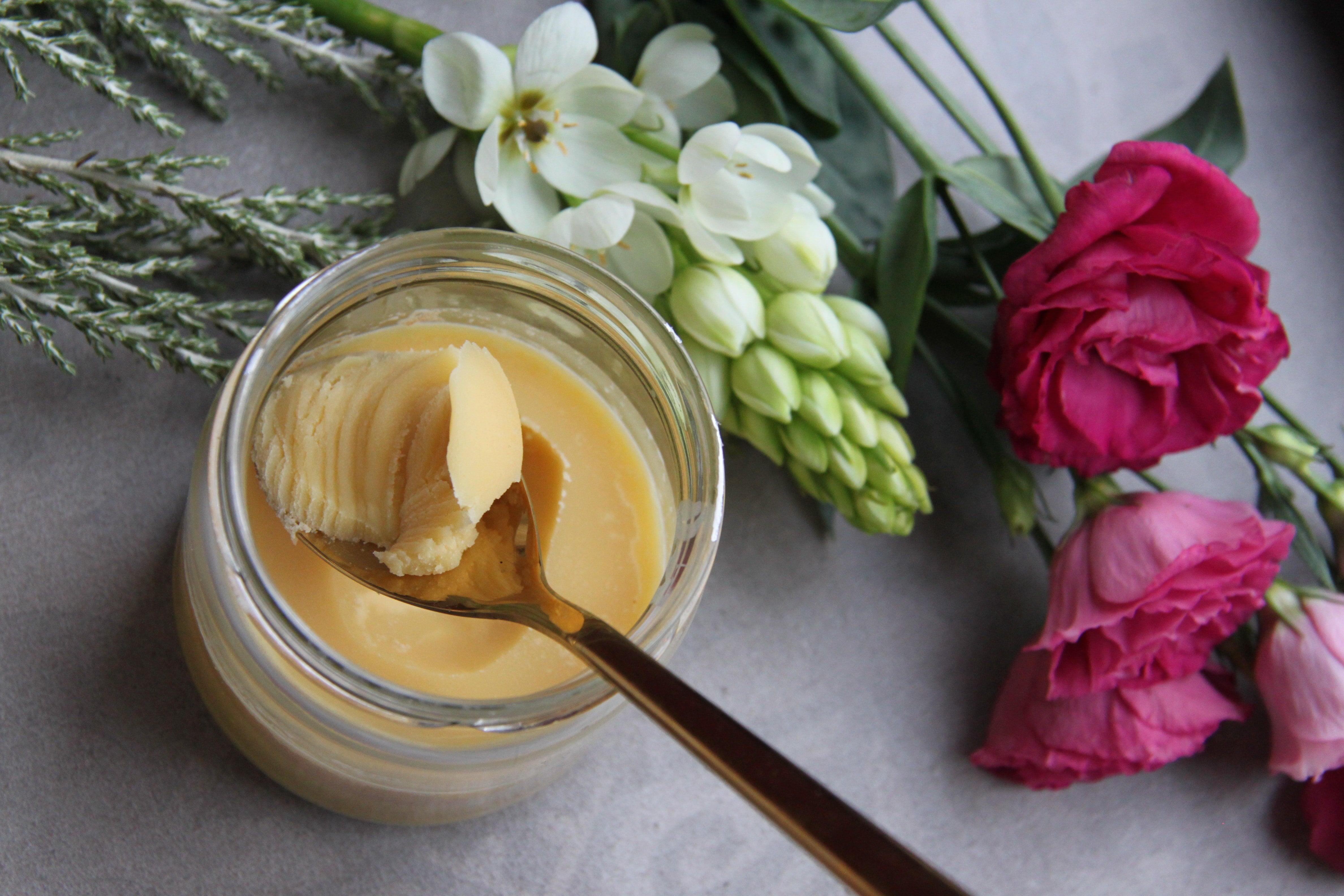
Medical Advisory Board Spotlight | Dr. Marvin Singh on 5 Tips For Optimal Gut Health
Gut Health 101 From An Integrative Gastroenterologist
Gut health is all the rage these days…and for very good reason! I guess we should first explain why gut health is so important. The reason why I and many of my colleagues tout the importance of gut health is because it is home to tens of trillions of microorganisms and collectively these are referred to as the gut microbiome. These gut microbes make up at least 70% of our immune system, impact our metabolism and weight, help produce vitamins for us, and can impact how we feel and how we think. They are definitely a formidable force!
As one of the only Integrative Gastroenterologists in the United States, I often get asked what are some of the easiest things one can do to improve or optimize gut (microbiome) health. Believe it or not, some of the things you might think are the simplest things, can actually be the most impactful:
-
Avoid toxins
-
Move regularly (aka, exercise)
-
Sleep
-
Reduce stress
-
Eat a well-balanced diet with plenty of colorful vegetables and plants
Toxins
Environmental chemicals and toxins are poisons to the gut microbiome. These include alcohol, tobacco, heavy metals, fertilizers and pesticides, food chemicals, medications, plastics, certain beauty products and cleaning products, and flame retardants to name a few. The microbiome is sensitive to toxins and these things can change the composition of the microbiome and this can lead to problems with metabolism, nutrient absorption, immune system dysfunction. When this happens, other downstream health effects can occur as a result of the chronic inflammation. (Source: Jin Y, et al. Effects of environmental pollutants on gut microbiota. Environmental Pollution. 2017.) I will often refer my patients to www.EWG.org as a go to resource for toxins.
Exercise
We all know that exercise is good for our heart and waist line. But why? Well, one of the mechanisms could be through the gut microbiome. Athletes have a higher diversity in the gut microbiome (this is widely accepted as a good thing). Exercise can enrich this diversity and stimulate the growth of beneficial gut microbes that can improve our immunity and gut barrier. This may be one of the major ways that exercising is good for your overall health. (Source: Clarke S et al. Exercise and associated dietary extremes impact on gut microbial diversity. Gut. 2014.) (Source: Monda V, et al. Exercise modifies the gut microbiota with positive health effects. Oxidative medicine and cellular longevity. 2017.) I usually suggest at least 150 minutes of movement per week.
Sleep
Sleep is one of the most important things to remember to get enough of. Chronic interruptions in sleep can actually lead to systemic and fat tissue inflammation. When this happens, our metabolism gets thrown off, and it is felt that the reason this happens is because of changes in the gut microbiome. When we have fragmented sleep, we can see changes in the ratios of certain bacteria in our gut and these same changes and trends are noted in the development of obesity and low grade inflammation (Source: Poroyko V et al. Chronic sleep disruption alters gut microbiota, induces systemic and adipose tissue inflammation and insulin resistance in mice. Nature Scientific Reports. 2016.). I often suggest using a tracker to monitor sleep and sleep quality and to try to be consistent about bed time; and I usually shoot for about 7 hours of sleep per night because the Journal of the American Heart Association also suggested that this was the amount of sleep that was associated with the lowest risk of cardiovascular events (Yin J et al. Relationship of sleep duration with all-cause mortality and cardiovascular events: a systematic review and dose response meta-analysis of prospective cohort studies. J Am Heart Assoc. 2017.)
Stress
Stress is also super important. We know that there is a gut-brain-microbiome connection. This means that the gut, which has its own nervous system, is connected to the brain and information is exchanged rapidly all day long across this information superhighway. Fun fact: The gut contains about 100 million neurons, more than the spinal cord! We know that the gut microbes can impact brain signaling and we also know that the brain can impact the gut microbiome’s composition. (Source: Singh, M and Mullin, G. Diet and Environmental Chemicals and the Gut Microbiome. In: Vom Saal F, Cohen A, editors. Integrative Environmental Medicine. Oxford University Press. 2017.) (Source: Sanmiguel, C et al. Gut Microbiome and Obesity: a plausible explanation for obesity. Curr Obes Rep. 2015 June;4(2):250-261.). I tell my patients that it doesn’t matter to me if you do yoga, meditate, pray, or practice some other type of stress reducing technique; the important thing is to do something and do it regularly. Spending 15 minutes in the morning and 15 minutes in the evening doing some simple breathwork and guided meditations can go a long way! And don’t forget to have fun with your friends, family, and loved ones. The gut microbiome is happy when we are happy and thrives on social interconnectedness as well!
Diet
I saved diet for last because it is often the first (and only) thing people may talk about when it comes to gut health, and the other things mentioned don’t get enough attention. However, it is true that our diet choices make a huge impact on our gut health and the happiness of our microbes. In general, we want to avoid packaged and processed foods as much as possible and we want to eat clean, whole foods. Microbiota Accessible Carbohydrates are carbs that are made available to the bacteria in our gut as their favorite foods and they are found in vegetables and fruits. They do not get broken down by our digestive enzymes and are not absorbed in the upper small intestine, so they travel to the colon in order to serve as a meal to the majority of our gut microbiome. Certain bacteria like certain kinds of plant foods so in order to try to please the entire crowd, I often suggest that my patients eat a wide variety of colorful plants. This is where the common phrase “eat the rainbow” really comes from! If we eat a wide variety of vegetables and fruits, then we will be doing our best at pleasing as many microbes as possible and this will encourage a better diversity in our little ecosystem. In fact, there is even data suggesting that those who ate a Mediterranean diet had a decrease in levels of E.coli, increased levels of beneficial bifidobacteria, and increased short chain fatty acids (anti-inflammatory compounds that our microbes can make). When people ate more junk and snack foods, essentially the opposite happened. (Source: Mitsou E, et al. Adherence to the Mediterranean diet is associated with the gut microbiota pattern and gastrointestinal characteristics in an adult population. British Journal of Nutrition. 2017.)
So, there you have it! These 5 simple lifestyle factors are the quickest path to a resilient, well-balanced gut microbiome. Make it a goal to try to optimize each of these factors—perhaps one every several months—and by the end of a year, you will have a much different gut!
Dr. Marvin Singh, MD
Marvin Singh, M.D is an Integrative Gastroenterologist in San Diego, California, and a Member of the Board and Diplomate of the American Board of Integrative Medicine. He is also trained and board certified in Internal Medicine and Gastroenterology/Hepatology. A graduate of Virginia Commonwealth University School of Medicine, Singh completed his residency training in Internal Medicine at the University of Michigan Health System followed by fellowship training in Gastroenterology at Scripps Clinic Torrey Pines. Singh was trained by Andrew Weil, M.D., a pioneer in the field of integrative medicine, at the Andrew Weil Center for Integrative Medicine.
Singh is currently the Director of Integrative Gastroenterology at the Susan Samueli Integrative Health Institute at UC Irvine. He is also currently a voluntary Assistant Clinical Professor at UCSD in the Department of Family Medicine and Public Health; prior to this, he has been a Clinical Assistant Professor at UCLA and an Assistant Professor of Medicine at Johns Hopkins University. Singh is a member of the American Academy of Anti-Aging Medicine, American College of Lifestyle Medicine, and many other societies. He is actively involved in the American Gastroenterological Association. He is one of the editors of the textbook of Integrative Gastroenterology, 2nd edition (a Weil Series text) and has written several book chapters and articles.
He is dedicated to guiding his clients toward optimal wellness every step of the way, using the most cutting edge technologies to design highly personalized precision based protocols. Towards this end, he founded Precisione Clinic and wrote the book Rescue Your Health to bring the best in preventive medicine to his clients.
Singh serves as Chief Medical Advisor on the Element Apothec Medical Advisory Board, leading a team of integrative physicians, pharmacists, and researchers to create the best experience for you, our conscious consumer.
“The purpose of a truly comprehensive integrative health program is to compassionately help individuals feel well, obtain their goals, and take control of their lives. This is a fundamental principle in healing and a pathway to joy and happiness for the patient and the provider.”
– Dr. Marvin Singh, MD, Founder Precisione Clinic











